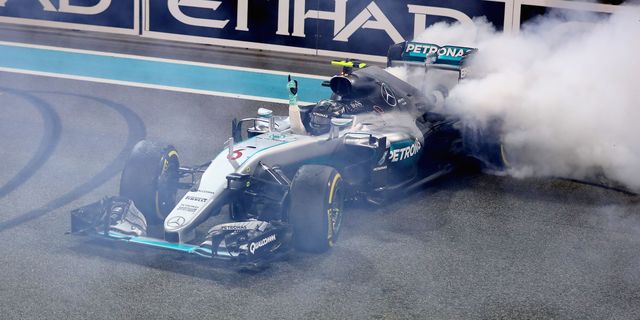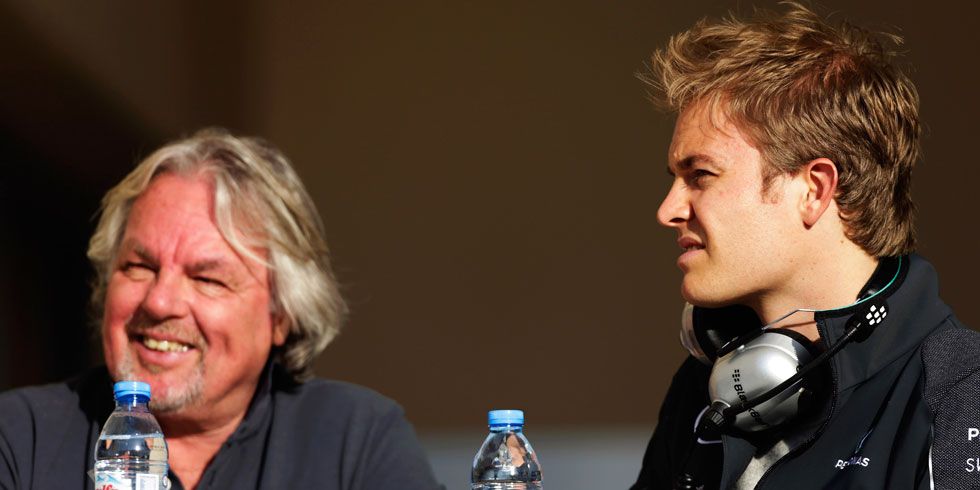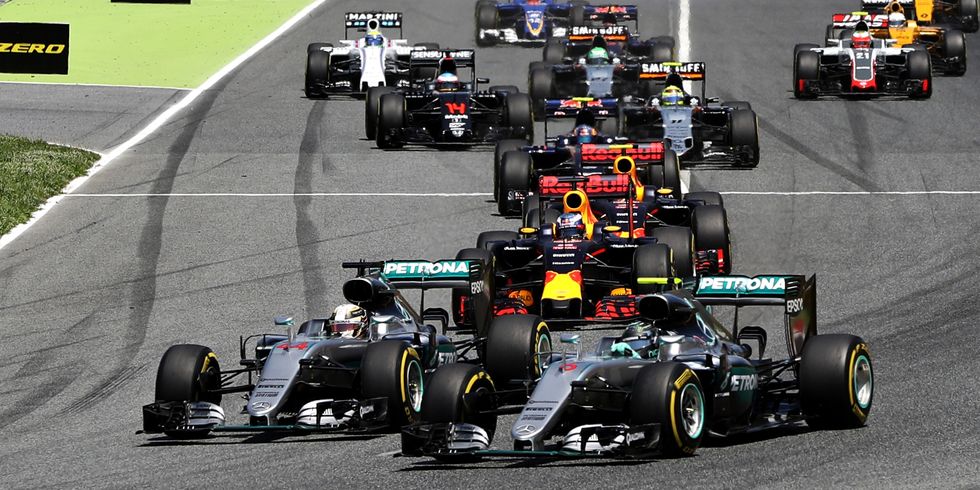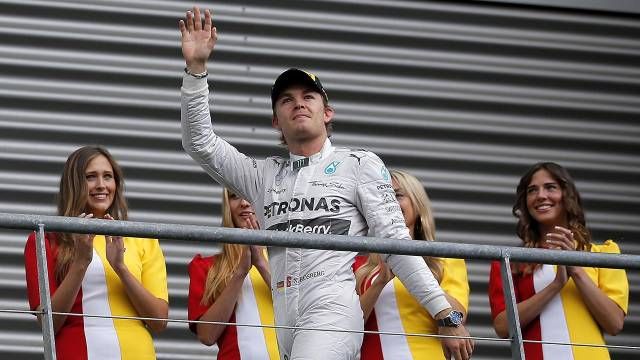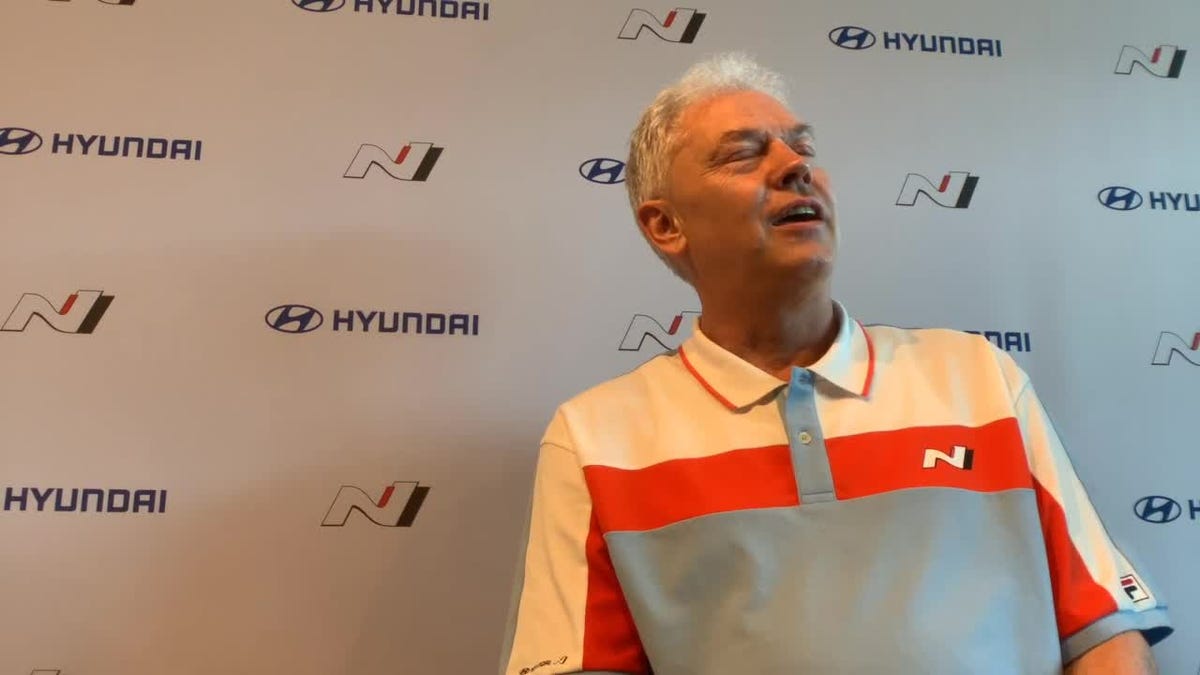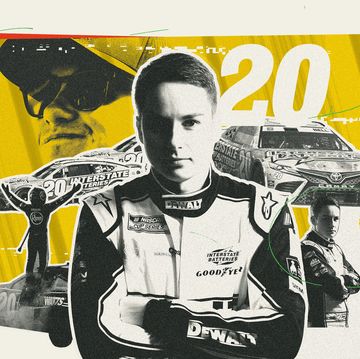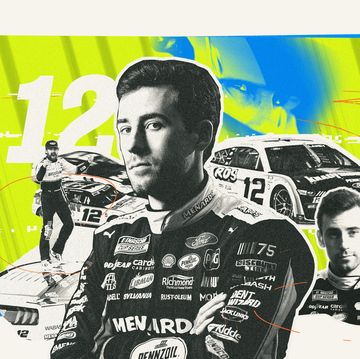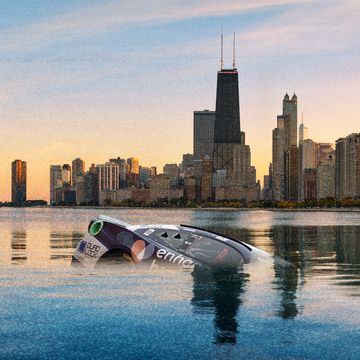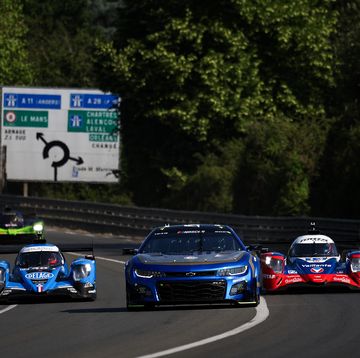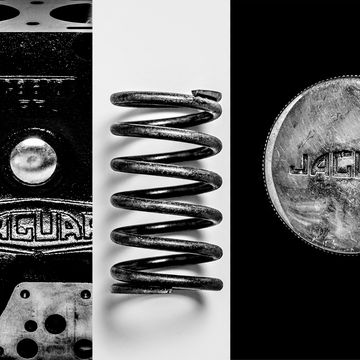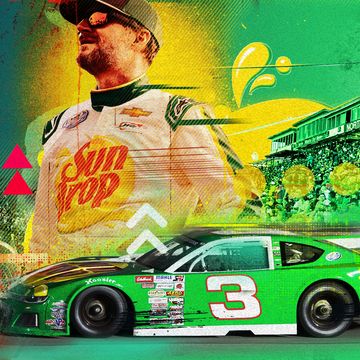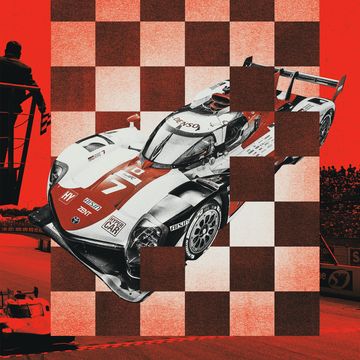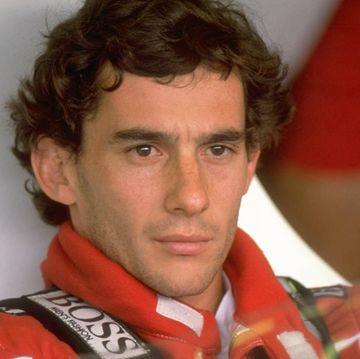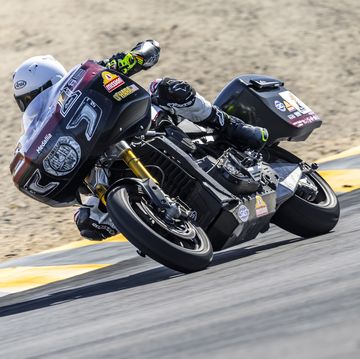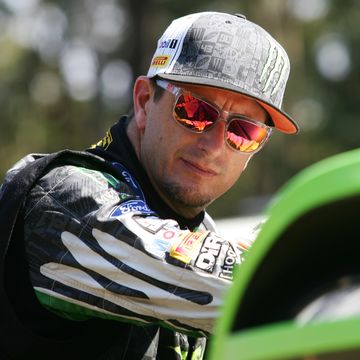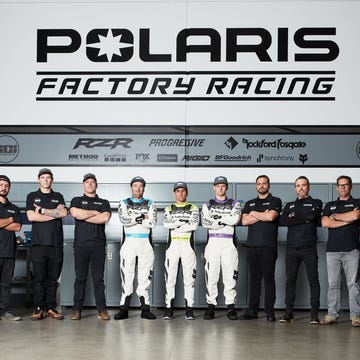Nico Rosberg saved his most honest performance for last.
Days after achieving his lifelong dream of becoming a world driving champion, the most complex Formula 1 driver of his era sent shockwaves through the sport by retiring at the age of 31. We should have seen it coming.
More duty-bound than passion filled, Nico had become a vision of discomfort. Racers refuse to accept the inevitable finish line awaiting their careers, but Rosberg was a unlike the other animals. The joy of the fight demonstrated in his formative years was replaced by a longing to find a graceful conclusion. At last month's title-decider in Abu Dhabi, the exit door finally opened.
The German's choice to quit after winning his first title confirms many of the suspicions I've held since he moved from Williams Grand Prix to join the new Mercedes AMG F1 program.
Trading a solid second-tier ride for a chance to eventually take over the No. 1 position at Mercedes fit his life's preordained narrative; the son of Keke Rosberg, 1982 F1 world champ, was finally in a position to fulfill his destiny.
Cast as the eventual successor to his teammate, seven-time F1 champ Michael Schumacher, the spotlight became fixed on Nico's every move. Rosberg soon had the look of someone angling for a return to the shadows. In hindsight, the switch to Mercedes also revealed Nico's true personality.
Keke, the gregarious Finn, was nowhere to be found in his firstborn. The burning desire to compete—a hallmark of F1's most evocative heroes—made fleeting appearances as Nico traced his father's steps. Supreme talent was clearly part of the Rosberg bloodlines; the inexhaustible need to demonstrate it on the world stage, however, was not part of the DNA package.
Unlike his father, Nico gave the impression he could live without racing. Had the elder Rosberg chosen farming as the family business, I suspect his son would be tending soil in anonymity today.
My lasting memory of Rosberg will be of a young man who couldn't stomach prolonged exposure to the soul-jarring presence of Lewis Hamilton. His former childhood friend brought misery as a Mercedes teammate. With tranquility lost and self-confidence eroding, Nico's need to distance himself from the Briton's antagonistic ways became one of the few relatable aspects of his character.
Without Hamilton in the Mercedes team, I doubt we'd be discussing Rosberg's career in the past tense. During those pre-"Hammer time" days, and with Schumacher struggling to match his pace, Nico almost looked settled as the heir apparent within Mercedes. Sadly, beating a living legend in identical equipment proved to be a temporary relief valve; the arrival of Hamilton in 2013 to replace Schumacher spelled the end of Nico's brief flirtation with inner peace.
Rosberg's introversion was only hardened after Hamilton, already a world champion with McLaren, rode into the machine-like Mercedes team with cruel intentions. In Rosberg, he found someone whose foundation could be rocked with words. A free radical among droll, process-driven types, Hamilton's anarchistic ways must have triggered Nico's fight-or-flight response shortly after he arrived.
Being asked to coexist with his flashy counterpart—one who felt zero nostalgia for their shared past—resulted in a visible, personal decline for Rosberg. Retreating inward, the default move for a loner like Nico, was his coping mechanism. With Hamilton taking up residence in his subconscious, Nico lost his edge; No. 1 status at Mercedes was surrendered until he hit back in 2016. Four years in, the shaky foundation was slid beneath Hamilton's feet.
What should have been a compelling story of redemption for Rosberg—of finally beating his bully—became muted by years of prickly interactions with all those outside his small inner circle. Rosberg, the intentional stranger, erected walls that made establishing bonds a significant challenge.
In light of the retirement news, an F1 reporter friend rang on Friday to celebrate the evaporation of grand prix racing's darkest cloud. Words and phrases like "He gives you nothing," "cold," "calculating," "insincere," and "zero personality," were used to describe the tortured soul that was Nico Rosberg. The call was capped off with "he won't be missed."
Although his fans will surely disagree, losing Rosberg from the grand prix grid is far from a tear-shedding occasion. Replace Nico's retirement with a Fernando Alonso or Daniel Ricciardo, and fans would be crashing pubs from Spain to Australia to sing songs and consume pints in their honor. As much as I'd love to think the same kind of reverie will take place for Rosberg in Germany, or wherever else his fans reside, I'm just not sure he's made the kind of connections to warrant such a response.
Will he be missed? Of course. Will he be remembered? By an unfortunately small number, I fear.
Like four-time F1 champion Alain Prost, Nico did a lot of winning while at his peak, but the list of truly memorable performance—the kind that will be retold for generations—is revealingly thin. In a sport where its stars are expected to incite and inspire the masses, Rosberg was F1's sensible pair of brown shoes.
When it came to exploring the scariest outer reaches of vehicle performance—that place where the Sennas and Villeneuves lived, Nico was never accused of being the fastest driver of his generation. But, to his credit, he was incredibly efficient, and like Prost, was capable of matching and out-performing his celebrated rival on numerous occasions.
With 23 grand prix wins and a stellar 2016 season that delivered nine of those victories, Nico will venture into the next phase of his life being introduced as "Formula 1 world champion." It wasn't a fluke, as some have suggested.
If there's sorrow to attach to Rosberg's retirement, it's for the questions destined to remain unanswered. First-time champions, even for an introvert like Rosberg, tend to change in demonstrable ways. We've never experienced a championship-grade Nico rolling into a new season; I suspect the lightness and ease that made infrequent visits in years past might have washed over his title defense. And from that newfound place of inner assuredness, a proper fight with Hamilton—on equal mental footing—would have been fascinating to observe.
F1 is also losing its most compelling storyline. The warring teammates, the cold stares, bitter comments, and occasional wheel banging. . . all have brought heightened awareness to a series searching for an identity in the age of social media. For the casual F1 fan, of which there are many, the Silver Arrow-themed slugfest was guaranteed to entertain.
Watching Lewis feast upon whomever fills Nico's seat is destined to disappoint. It certainly happened when Gerhard Berger replaced Prost alongside Senna at McLaren. F1, without the major discord among title contenders, might be a refreshing change from the recent norm; the lack of tabloid drama in the Mercedes camp will definitely require an adjustment period once the 2017 season gets under way. I doubt the new world champion will be pining for a return anytime soon.
I'm happy for Rosberg, and from all I've read since Friday, his decision struck a chord with many others who were apathetic to his presence in the sport. F1's distant star finally connected with fans by citing the need to place marriage and fatherhood above pursuits of a second or third driving title. A burden lifted, a deep exhale after accomplishing a lifelong goal.
Stuck in a lingering cycle of distress at Mercedes, Nico set earning an F1 title as his personal finish line. In the end, we learned Nico's truth: all he wanted was to bring a championship home to his wife and daughter and bid farewell.
